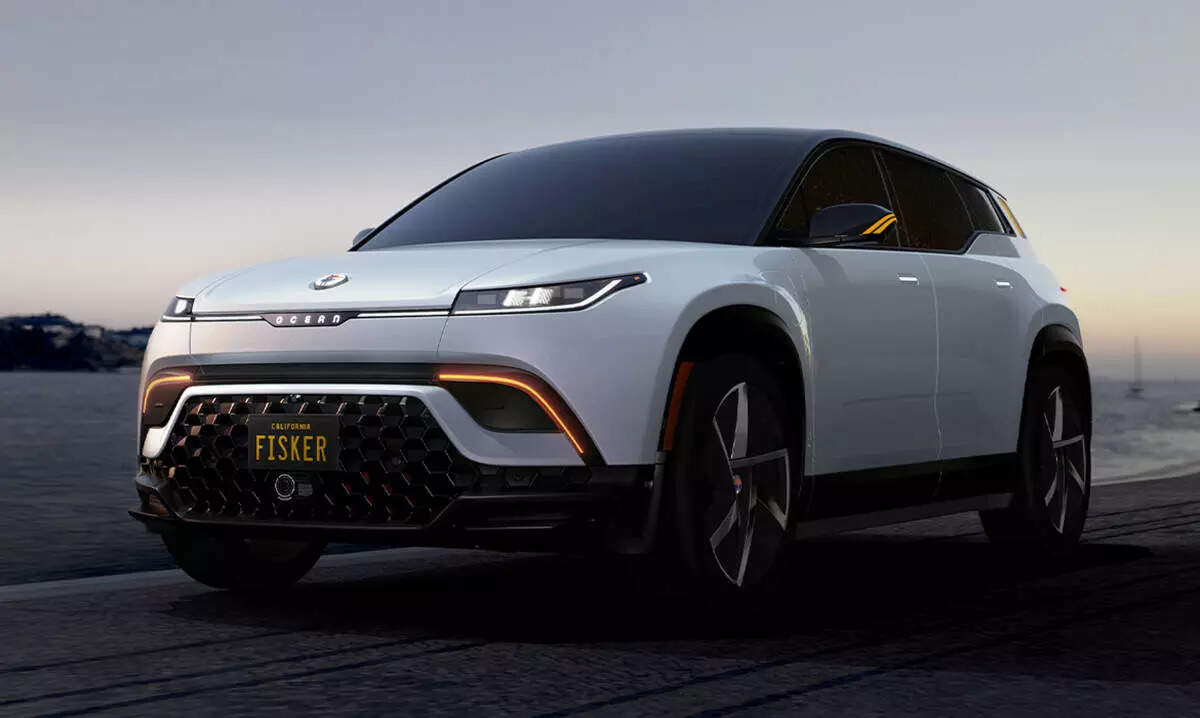
Mumbai: Elon Musk is yet to embark on his India project for the manufacturing of Tesla’s world-leading electric cars here. But, the new entrant to the global electric vehicle (EV) market, Henrik Fisker, and his California-based Fisker Inc, which will roll out its first model named Ocean SUV on November 17, 2022, is gradually advancing with its India-centric plans. They involve technology development, marketing, platform sharing and joint venture manufacturing, sales and servicing in due course.
Fisker Inc.’s Hyderabad-based technology development centre has already started delivering software technologies for the Ocean SUV. The engineering base, which specialises in software technology development, is planned to be ramped up to become Fisker Inc’s bigger of the two tech hubs outside USA, with over 500 engineers. (The American company currently has an engineering and development base each in the US (Silicon Valley), the UK , and India.)
The NYSE-listed Fisker Inc. showcased the Ocean SUV first at CES 2020. It is looking at sharing its platforms with existing OEMs and new players, from India also. As the global electrification megatrend grows, and disruptions rise, collaboration is the name of the game in the automobile industry.
Fisker plans to import and launch the Ocean SUV here by the middle of next year. It will also set up its first brand experience centre, Fisker Lounge, in Delhi-NCR area. For sales it will follow a direct-to-customer delivery model with a local partner for servicing the vehicles.
Collaboration
During his first visit to the Fisker Inc’s India base in Hyderabad, Henrik Fisker, the company’s founder, chairman and CEO, told ETAuto, “There were some global OEMS that said, ‘hey, can we take a look? Can we license it?’ So we’re in some discussions of looking into whether they want to license a platform.”
With the Indian electric passenger vehicle market gaining traction since the past year, there’s interest from India for Fisker Inc.’s platform. But the company, which is weighing the option of getting its models contract-manufactured here by its existing partner Foxconn, is also looking for more than just sharing a platform with an Indian partner. “Maybe it’s worth doing some joint ventures for manufacturing and sharing platforms and everything else, because that way, we all get volume,” Fisker said.
Platform-sharing, even if only partly, can be both a cost and time efficient approach and a faster way to ramp up volumes. A recent example is that of Mahindra & Mahindra joining hands with Volkswagen for sourcing critical components from the global major’s MEB platform to build its own platforms for ‘Born Electric’ SUVs.
Fisker Inc. also would have had an alliance with Volkswagen if it had proceeded with its initial plan of building the Ocean SUV on a platform from the German auto major. “We didn’t do it because we wanted to do it differently. We need a bigger battery in it. And now it’s (the Ocean platform) exclusively ours. We own all the IP,” Fisker said.
The Ocean SUV is being contract manufactured by Magna International in its plant in Graz, Austria. The installed annual production capacity is for 50,000 units. During the Hyderabad interview, Fisker said that the order figure stood at over 60,000 units. A small part of it comes from India too.
According to Fisker, there have been preliminary levels of interest in Fisker’s EV platform from parties in India. “With Tesla as an exception,” the car designer-entrepreneur said, “there is no car company in the world, no matter how big they are, which has achieved the critical scale in EVs yet.”
Production of PEAR in India
Fisker Inc. targets manufacturing cars in India by the second half of 2024, starting with its second model, named PEAR (Personal Electric Automotive Revolution). A tripartite venture among Fisker Inc., Foxconn, and an Indian partner, is also a possibility for the PEAR project. Currently in the development stage, Fisker Inc. is betting on the crossover type of model to garner big volumes. The planned annual production is 250,000 units (including exports) in a Foxconn facility in the US alone.
The target price for the entry-level variant is kept at USD 20,000 (around INR 16 lakh), which some say may be too aggressive to be achieved. “Maybe we share the PEAR platform with somebody in India, because it’s very cost-effective. And it’s hyper modern. So maybe there’s an Indian company that says, ‘can we share the platform, and we all make it in the same factory’? That’s a possibility,” Fisker said.
Market development strategy
With Europe and North America as the first set of markets, Fisker Inc. wants to add China too by the last quarter of calendar year 2024. The India production plan is expected to be executed before China. But right now, Fisker and team’s “number one goal is, we need to get the Ocean out on the market, generate revenue and get up and run at full speed”.
The India market strategy will need a great amount of research and efforts, as this market has proven itself to be not only quite promising but also more challenging than what some of the biggest OEMs expected it to be.
Read More:
















